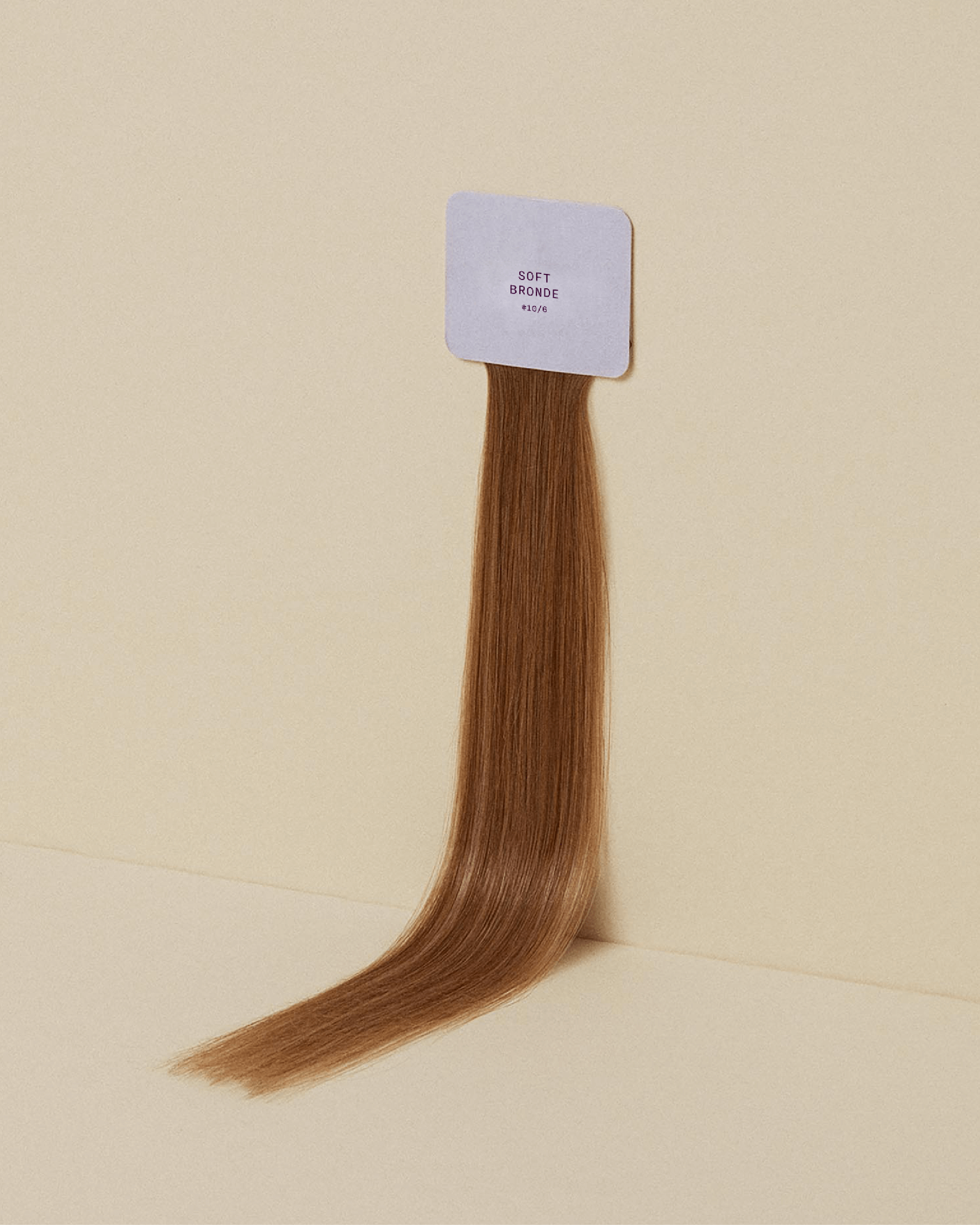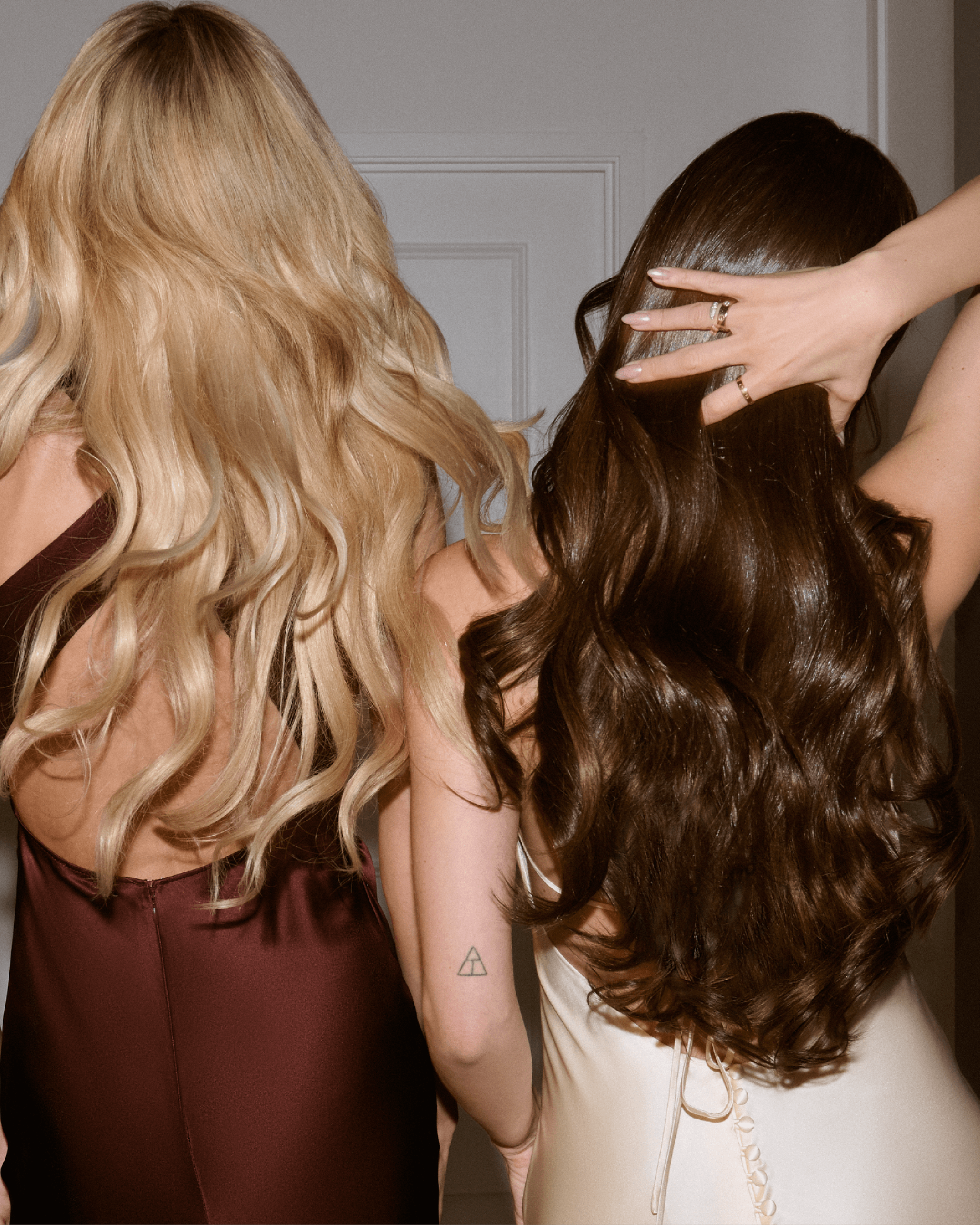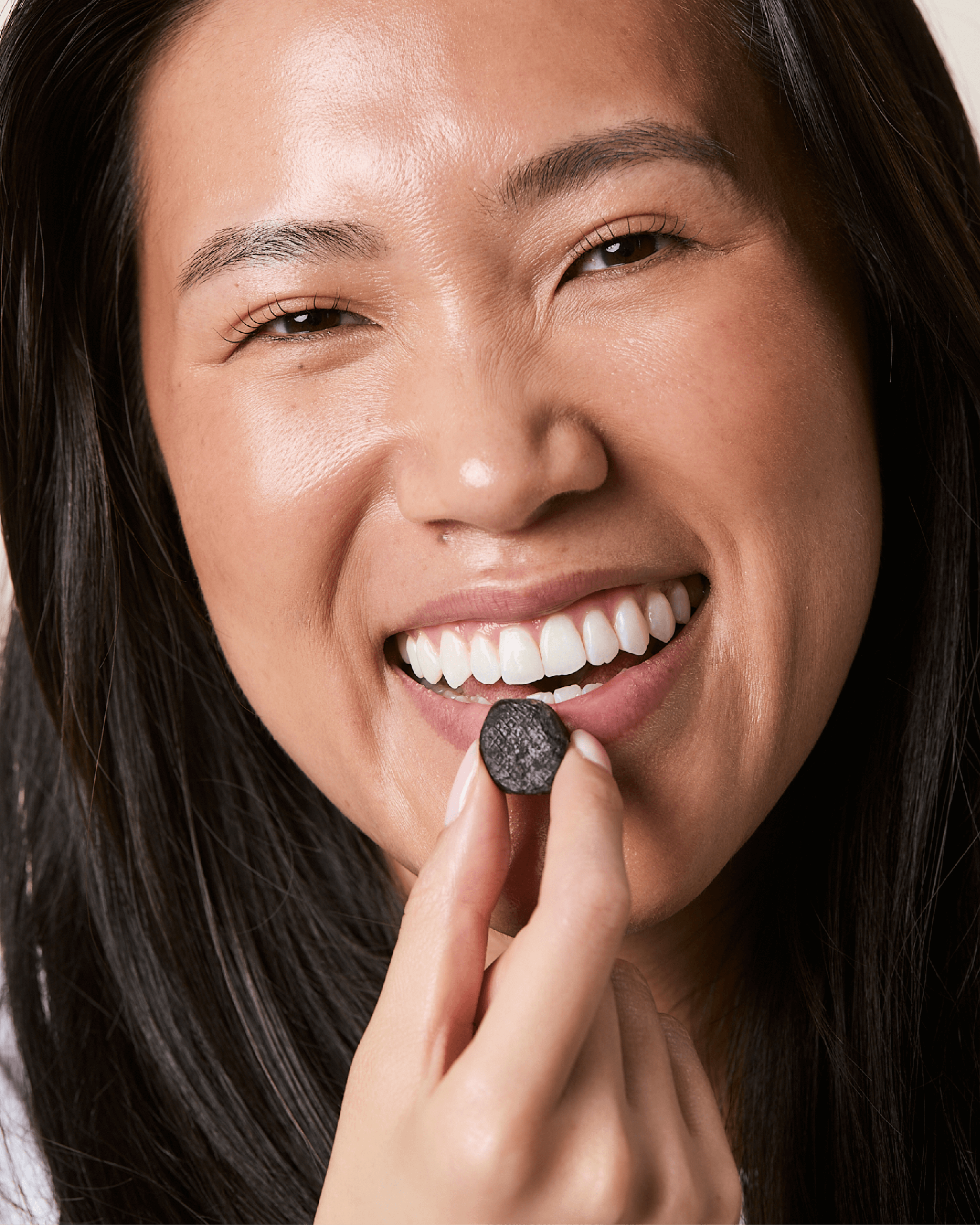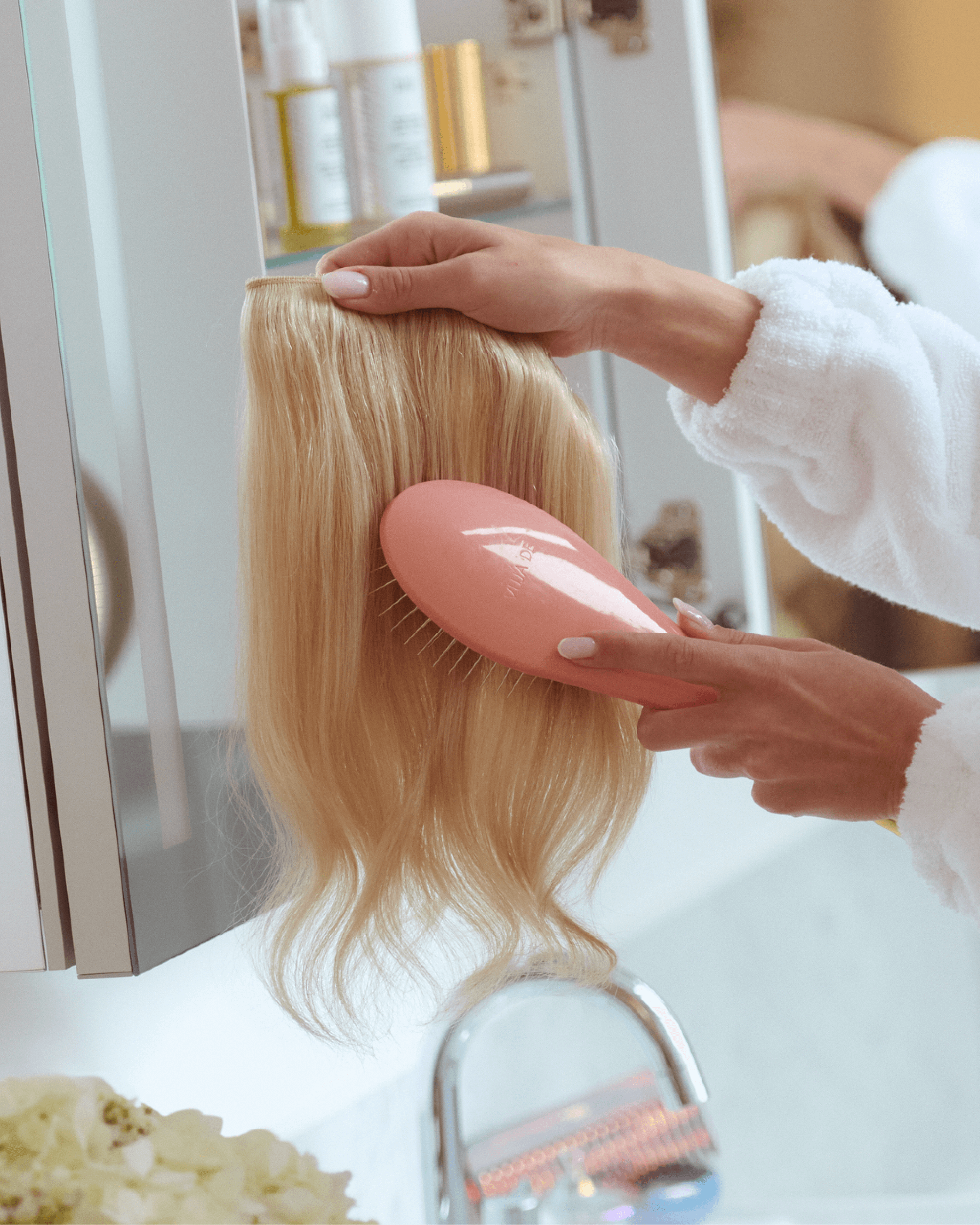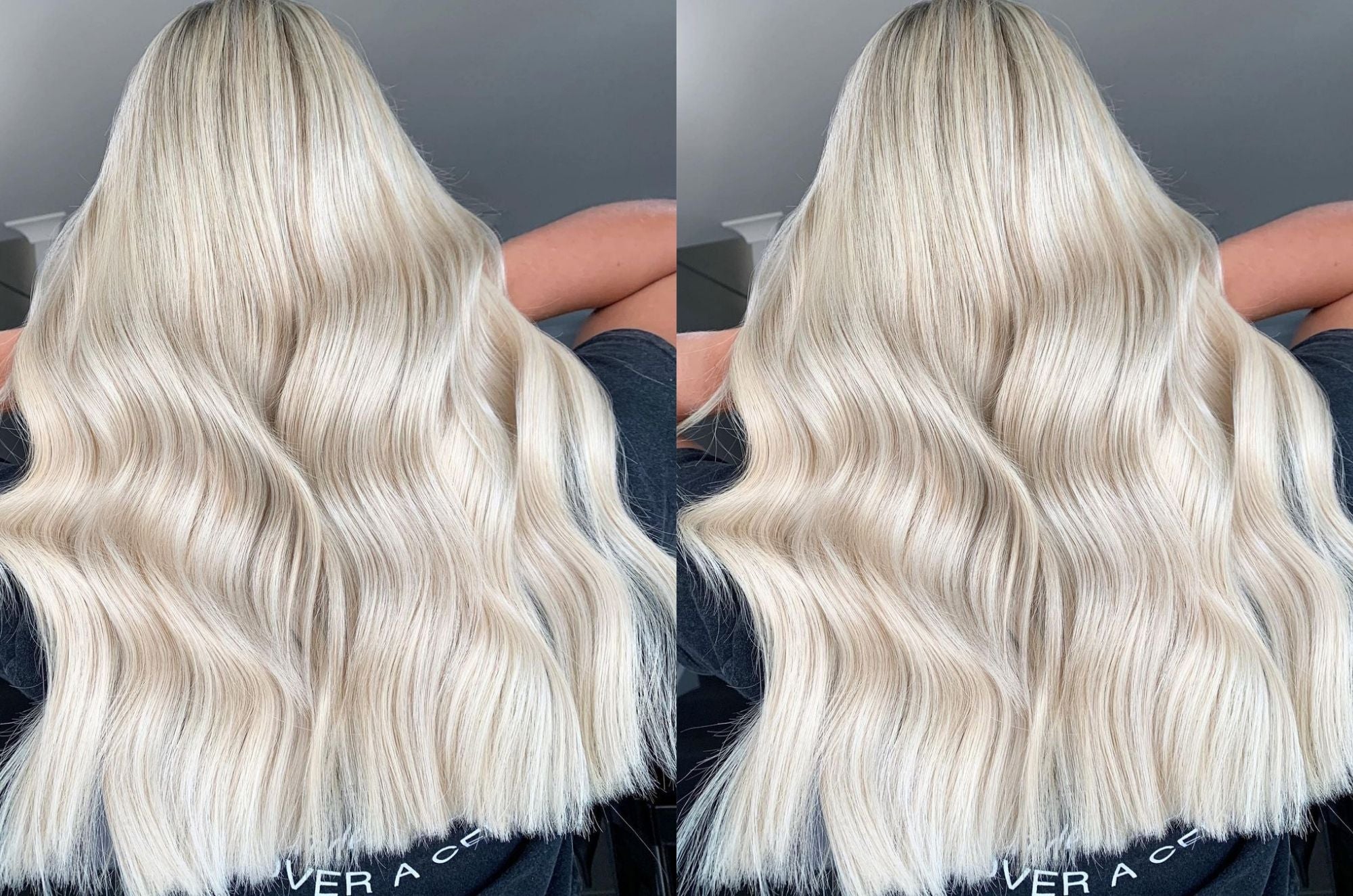Ever wonder what causes oily hair? Or why your friends can go so long without washing their hair, while yours looks like you lost a fight with the deep frier?
The truth is there are many causes of oily hair. And not only does greasy hair make your locks look lacklustre and dull... It also affects how your hair feels.
Furthermore, excess oil is uncomfortable, itchy and can cause dandruff, and dermatitis. So it's definitely not #hairgoals.
But, don't worry my oily one, there are plenty of oily hair home remedies available. So you can still have the silky strands of your dreams!
But before we chat about getting rid of excess oil, let's talk more about what causes oily hair to start with.
Is oily hair bad or good?
Well;
From hair breakage to itchy scalp, over time, not treating excess scalp sebum can cause some pretty gnarly side effects.
For instance;
It can even cause the hair follicles to become permanently blocked.
Meaning:
They will cease to produce new hair strands.
This equals permanent hair loss!
Eek.
Read: Here's Why Your Scalp Is Sore Or Feels Like It's Burning
What causes oily hair?
There are a many causes of oily hair.
But at the core, there are two causes;
1) Oily hair happens when our sebaceous glands go into overdrive and produce too much sebum, and;
2) If we allow oil to build up on our scalps.
But...
How and why does this happen?
Let me explain:
Oily hair and scalp can be caused by:
- Too much stress in your life.
- Washing your hair too much.
- Washing your hair too little.
- Detergents used to wash your pillowcases.
- Your diet (what you eat on a regular basis).
- The products you put in your hair, including shampoo.
- Air quality (pollution).
- And more...
Read: What Causes Hair Breakage and How To Fix It

Wearing MEDIUM Halo Extensions in Col. #4/6
Can stress cause oily hair?
Stop stressing about your oily trusses.
Because:
You're actually making it worse!
Seriously.
Did you know stress can cause oily hair?
As mentioned above:
Excess oil is caused by sebum overproduction.
And well...
It turns out stress can throw your sebum production out of whack.
This is because;
Our bodies cease to function normally under pressure.
And;
Our sebaceous glands are not immune to this!
So...
When we're stressed, just like our nervous system, our sebaceous glands go into overdrive.
More stress means more oil.
And to top it off:
Hair loss can literally cause hair loss for women.
So...
Don' stress! :)
Also read: What Halo Hair Extensions Are And How They're Different
How does over washing cause oily hair?
Washing your hair too frequently strips your hair of its natural sebum/hair oil.
Which in turn;
Sends a signal to the scalp to produce more.
This means:
If you're washing your hair daily...
...your scalp is constantly being bombarded with unnecessary sebum SOS signals.
Which means;
You end up with way more oily than you had in the first place.
Not ideal.
Can under-washing cause oily hair?
Washing your hair too little won't cause sebum/hair oil production.
But...
It will cause hair oil to build up on your scalp.
Resulting in oily hair.
So;
Oily hair and scalp can be caused by washing your hair too much AND too little.
Another thing to consider:
Shampoo and conditioners of all various brands tend to be super toxic.
And...
To protect itself from environmental toxins, your scalp may produce more hair oil as an insulating layer.
So if you think of it that way;
Your hair oil is actually kind of extraordinary.
Popular: 5 Harmful Or Toxic Ingredients In Shampoo
How your pillowcase can cause oily hair:
Cotton pillowcases are the culprits of some serious hair troubles.
Including oily hair.
Cotton pulls the natural oils from your hair.
This leaves your hair dehydrated.
While that sounds like the opposite of oily hair;
It's actually a massive contributor over time.
The more dehydrated your hair is...
...The more sebum your strands signal to produce, which means they become overactive.
Silk pillowcases on the other hand preserve moisture, which keeps your hair hydrated, and your sebum production in check.
Also;
The amount you wash your current pillowcase has a big impact on the overall cleanliness of your hair.
So...
If you're not switching to silk, try to wash your pillowcase at least once per week.
And;
The detergent you use to wash your pillowcase will also affect your oil production.
This is because detergents can be full of toxins.
And your scalp will produce more oil to protect itself from environmental pollutants.
Pollutants in your hair and in the air.
How does your diet cause oily hair?
A healthy hair diet is vital for so many reasons.
But one of the most important reasons is;
Maintaining hair oil production.
For instance;
Too much-refined sugar, dairy and red meat are some of the main culprits when it comes to greasy locks.
Why?
Because these foods break down into androgens.
Which is just a fancy science term for hormones.
But, simply put;
It means these foods generate a hormone influx in our systems.
And;
Not just any old hormone...
Testosterone!
So be careful.
More hormones mean more sebum.
And, more sebum means more grease!
Learn more: How Your Hair Affects Your Mood
Which products cause oily hair?
Oil and wax-based hair products are oil based.
So...
They'll cause oily hair when you use too much of them.
Or when you fail to rinse them properly.
But;
The same can be said for almost all hair products.
Did you know:
Product build-up is one of the leading oily hair causes?
It's true.
And this is because;
A buildup of hair products can clog up your hair follicles.
But...
The types of products you're using can equally be to blame for your oily hair and scalp.
In fact;
One of the more apparent products that cause oily hair is... well, oils.
But only when misused.
Here's the thing:
When used correctly, hair oils can actually be useful in treating excess sebum (but more on that later).

Wearing the MEDIUM Halo Hair Extension in Col. #4/6
Oily hair remedies at home:
Now...
On to the most important part of this article;
The oily hair solutions you've been waiting for!
In this section;
I'm going to share in detail, 7 remedies for oily hair that are tested and proven to work.
And best of all?
You can do most of them at home!
Read: The 8 Best Hair Masks to DIY At Home
1. Apple Cider Vinegar Rinse
This is one of my favourite oily hair hacks!
Did you know;
That ACV breaks down oil, cleaning your scalp and leaving your strands shiny and strong?
And...
It also helps to balance your scalp pH level and restores your body's natural sebum production.
Here's what to do:
- Combine one cup of Apple Cider Vinegar
- With two cups of warm water
- And apply to shampooed hair.
- Leave the rinse for 10 minutes before rinsing thoroughly and condition as usual.
Use once per week until your hair is restored.
Then;
Repeat once a fortnight for maintenance.
2. Scalp Scrub
If you're in desperate need;
Try this oily hair quick fix for instant results!
If you already didn't know...
Exfoliating your scalp scrubs away all the dirt, grime and build up of products clogging your follicles and dirtying your scalp.
And;
It also increases blood flow.
Which means; healthier hair production overall.
Here's what to do:
- Mix two teaspoons of coffee with a teaspoon of coconut oil.
- Shampoo your strands and part your wet hair.
- Apply the mixture directly to your scalp and scrub.
- Rinse carefully and condition.
Repeat once per week.
3. Epsom Salt
This is an awesome oily hair care tip.
Because epsom salts help to clean the hair and scalp while also boosting hair growth.
Just do this:
- Combine equal parts Epsom salt and shampoo and mix well.
- Wash your strands as usual.
This is a very mild oily hair solution, so you can use it a few times per week.
4. Wash in moderation
Strike a balance when washing your hair and stick to a routine.
If your scalp naturally produces more sebum;
Wash your strands twice a week.
But if you have regular sebum production, once a week should suffice.
And;
Always be sure to wash your strands after using a lot of products.
Or after getting your hair dirty.
5. Aloe Vera
Aloe Vera removes excess oil, soothes the scalp and fights product build-up.
You can either add aloe vera directly to your shampoo or apply it to your hair as a mask.
Either way, you will reap the rewards.
6. Clean your tools
Keeping your brush and hot tools clean is a top-notch oily hair hack.
Like your makeup brushes, your hair tools are covered in nasties that contribute to the dirty scalp and greasy hair.
Keeping them clean is a simple way to get rid of oily hair.
7. Baby powder
It might take a while for the oily hair home remedies to take effect.
But...
There are ways to hide it in the meantime.
Here's the thing;
Baby powder is one of the easiest ways to absorb excess oil instantly.
And;
This is also great to get you an extra few days between washes.
Because less washes = less damage.
Just like dry shampoo, apply baby powder to your roots and brush through.
But:
Don't do this for more than one day between washes.
Because it will contribute to product build-up on the scalp if used too often.
You Might Also Like:
- What you need to know about sebum on your scalp
- DIY Deep Conditioning Treatment At Home For Dry Hair
Read more

Too much sebum got your hair feeling blah? Fret not, say goodbye to greasy and lacklustre locks with these home remedies for sebum overproduction.
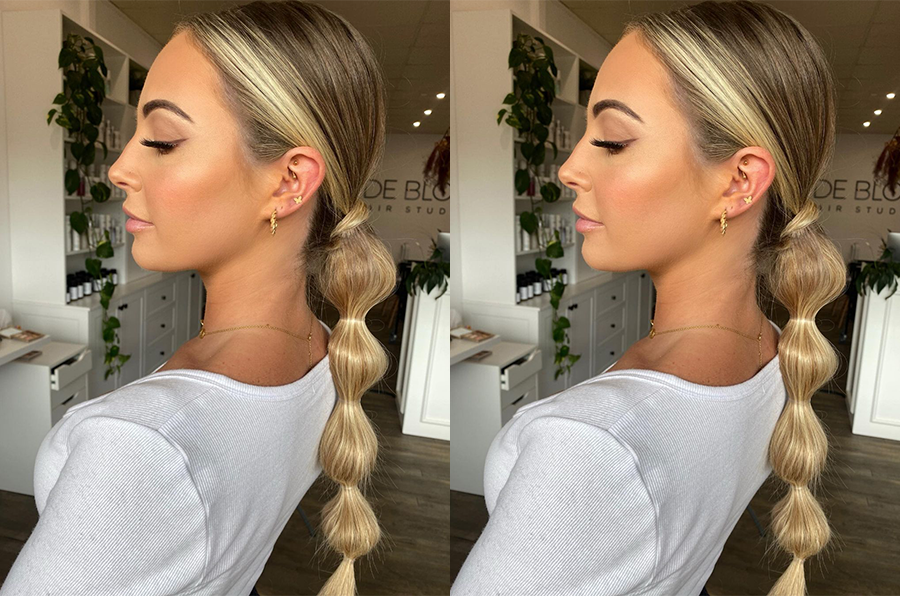
Want more good hair days? Stop washing your hair so much! Let your scalp rejoice with these 10 hairstyles for oily hair.
